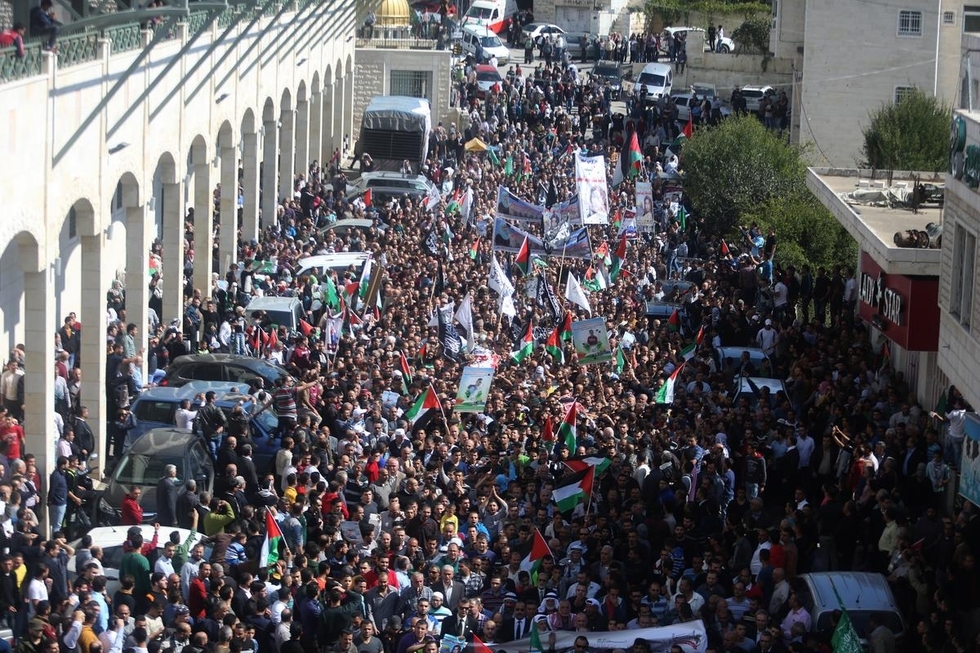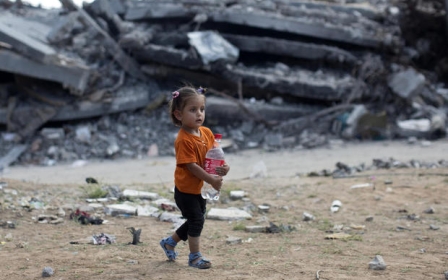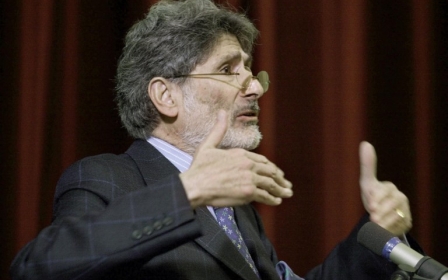Israel’s falsified fear of a one-state solution

Speaking in Washington DC last week, US Secretary of State John Kerry described “the current situation” between Israel and the Palestinians as “simply not sustainable”.
The senior diplomat reaffirmed that his government sees a “two-state solution” as “the only viable alternative” to the status quo. “Anybody who thinks otherwise,” he added, “can measure what unitary looks like by just looking at what's been occurring over the past few weeks.”
Kerry’s comments have been echoed by a number of commentators, who have similarly sought to affirm the case for a two-state solution – while simultaneously attacking the idea of a ‘one state’ solution – by pointing to the intensification of violence since September/October.
Writing in the New Statesman, Ari Shavit – described by the magazine’s editor as one of Israel’s “leading liberal voices” – claimed that “the difficult events of this dark autumn have revealed… the true and terrifying meaning of an increasingly fashionable idea – the one-state solution.”
According to Shavit, “what has occurred in the Promised Land over the past few weeks should be heard as a powerful wake-up call…that says there is no other solution than the two-state solution. A wake-up call that says the one-state solution is a deadly solution.”
He was not alone. In Haaretz, Asher Schechter argued that the recent violence was “not an intifada” but “something far more sinister: A terrifying preview to a binational, one-state Israel that already exists to a large degree on the ground.”
The Guardian’s Jonathan Freedland, meanwhile, wrote last week that without a two-state solution, Israel’s future was “either an apartheid state or a binational entity fated to never-ending inter-ethnic violence, of the kind so gruesomely previewed in the last few weeks of stabbings and shootings”.
What characterises these proclamations is a failure to distinguish between the status quo, and a future, one state, decolonised democracy. “Hallelujah, Gush Emunim nationalists; Hallelujah BDS liberals,” Shavit sarcastically wrote: “the bi-national reality is taking shape.”
The man hailed by Western liberals for his angst-ridden apologia for ethnic cleansing lumps together “the messianic religious nationalist right and the intellectuals of the Boycott, Divestment and Sanctions movement” as authors of “different forms” of the same “insane… idea”.
This misrepresentation of a democratic, single state for Israeli Jews and Palestinians is either cynically, deliberately disingenuous, or indicative of a total failure to engage with the substance of the idea (while damning it left, right and centre).
Schechter does in fact make a distinction, noting in passing that “a fully equal binational state might stop it [the unrest], but the chances of that happening are slim”. But this is not developed, and why the chances are “slim,” he does not say.
The Palestinians’ latest anti-colonial revolt is a product of the de facto “one state,” status quo, an on-the-ground apartheid reality that has been decades in the making. One in seven Palestinians are second-class citizens; a third are under military rule; half are excluded from their homeland.
Over the years, Israel has developed a system, based on legislation, walls, and lethal violence, designed to maintain a regime of privileges for Jews at the expense of Palestinians. The Israeli state controls the lives of all those resident between the Jordan River and the Mediterranean Sea, and affords or denies rights on a discriminatory basis.
The Israeli right represented by Prime Minister Netanyahu wants the status quo for as long as possible – the permanently temporary occupation. The Israeli right of Naftali Bennett and Tzipi Hotovely wants to take the necessary steps to create a single, defiantly apartheid state.
The Israeli left, the opposition represented by Tzipi Livni and Labor’s Isaac Herzog, want “separation” through the form of a Palestinian Bantustan state: in Rabin’s words, “an entity which is less than a state”. Or as Ehud Barak’s 1999 election campaign slogan put it: “Us here, them over there.”
The liberal Zionist appeal for separation is rooted in the belief that this is the way to protect an artificially and violently created “Jewish majority”; advocating such a course in the name of “security” is less honest, but presumed to be more palatable for some.
Back in March, the famed Israeli author Amos Oz dismissed the idea of one state as “delusional”; the “fantasy” of “equality,” he wrote, would guarantee a future “internal bloodbath”. Under the Apartheid regime, white South Africans also feared that a transition to democracy would mean “violence, total collapse, expulsion and flight”.
Contrast the settler-colonial paranoia of Oz with the conclusion of Gideon Levy, who has taken some time to abandon the two-state framework. Now, however, he has no illusions: “Out of the fire and despair, we must start talking about the last way out: equal rights for all. For Jews and Arabs. One state is already here, and has been for a long time. All it needs is to be just and do the right thing.”
Decades of attempted partition have failed. The Palestinians have not accepted the colonisation of their homeland. Population dispersal, water and natural resources, geography, transport networks – it is the one state solution that is “practical,” not two-state segregation. Violence is a consequence of the apartheid status quo, and the solution is decolonisation.
- Ben White is the author of ‘Israeli Apartheid: A Beginner’s Guide’ and ‘Palestinians in Israel: Segregation, Discrimination and Democracy’. He is a writer for Middle East Monitor, and his articles have been published by Al Jazeera, al-Araby, Huffington Post, The Electronic Intifada, The Guardian’s Comment is free, and more.
The views expressed in this article belong to the author and do not necessarily reflect the editorial policy of Middle East Eye.
Photo: Palestinians carry the bodies of the 5 Palestinians killed by Israeli forces after allegedly attempting stabbing attacks on Israelis, during a funeral ceremony after their bodies were released by Israeli authorities in the West Bank city of Hebron on 31 October, 2015. (AA)
New MEE newsletter: Jerusalem Dispatch
Sign up to get the latest insights and analysis on Israel-Palestine, alongside Turkey Unpacked and other MEE newsletters
Middle East Eye delivers independent and unrivalled coverage and analysis of the Middle East, North Africa and beyond. To learn more about republishing this content and the associated fees, please fill out this form. More about MEE can be found here.





